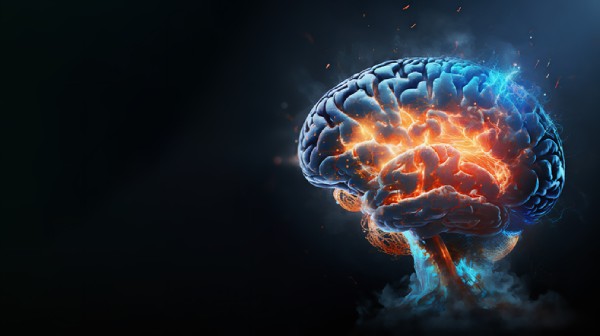Schizophrenia often weaves a complex tapestry of symptoms, deeply affecting the lives it touches. Imagine walking down a familiar path only to find it subtly altered, where shadows whisper, and reality seems to fray at the edges.
It’s a condition that both fascinates and mystifies, demanding our utmost attention and understanding.
Here, we delve into the early signs of schizophrenia, aiming to illuminate the path for early detection, diagnosis, and treatment.

What Is Schizophrenia? An In-Depth Overview
Schizophrenia is a complex and often misunderstood mental health condition that affects roughly 300,000 Canadians, according to the Schizophrenia Society of Canada.
This condition affects the way an individual thinks, feels, and behaves. It is characterized by a profound disruption in cognitive processes, leading to significant difficulties in discerning reality.
This condition can manifest through a range of symptoms, including hallucinations, delusions, disorganized thinking, and significant social withdrawal.
The impact of schizophrenia is not just on the individual but also on their families and communities, making a supportive, multifaceted approach to care essential for improving outcomes.
Who Does It Affect?
Schizophrenia is a global condition that knows no racial, cultural, or economic boundaries. Its onset is most frequent in late adolescence to early adulthood, with the Schizophrenia Society of Canada stating it typically develops between the ages of 16 and 40 for 75% of those with this illness.
According to Mayo Clinic, men often experience symptoms earlier than women, with the majority of males showing signs in their early to mid-20s, while females are more commonly diagnosed in their late 20s to early 30s.
Understanding the demographics affected by schizophrenia is crucial for early identification and intervention, which can significantly alter the disease’s trajectory.
What Causes Schizophrenia?
The etiology of schizophrenia is as complex as the condition itself, with no single cause identified. It is thought to result from a combination of genetic predispositions and environmental factors.
An article from the National Alliance on Mental Health, explains genetic factors can significantly increase the risk, especially when multiple family members are affected, increasing your risk by up to six times.
However, not everyone with a genetic predisposition to schizophrenia will develop the condition, indicating that environmental factors, such as prenatal exposure to viruses or malnutrition, psychosocial stressors, or substance abuse, also play a critical role.
This same article explained that schizophrenia has been linked to irregularities in the neurotransmitters dopamine and glutamate.
What Are the Different Types of Schizophrenia?
The concept of schizophrenia has evolved over time, with the understanding that it does not represent a single disorder but a spectrum of disorders with varying symptoms and severities.
The traditional categorization of schizophrenia into subtypes—such as paranoid, disorganized, catatonic, undifferentiated, and residual schizophrenia—has been largely abandoned in favour of a more nuanced approach that recognizes a broader range of symptoms and their impact on the individual.
This spectrum includes positive symptoms, like hallucinations and delusions; and negative symptoms, such as apathy and withdrawal.
The recognition of schizophrenia as a spectrum reflects a better understanding of the condition’s complexity and the need for personalized treatment strategies.

What Are The Symptoms Or Signs Of Schizophrenia?
In this section, we’ll explore the various signs and symptoms that fall into the positive and negative symptom categories.
Positive Symptoms of Schizophrenia
Positive symptoms of schizophrenia are those that add to a person’s behaviour and experiences, introducing elements that are not present in individuals without the condition. These symptoms are often the most noticeable signs of schizophrenia and include:
Hallucinations – Seeing or Hearing Things That Are Not There
- Engages all senses: Although auditory hallucinations are the most common, individuals may also see, smell, taste, or feel things that aren’t there.
- Auditory Hallucinations: The experience of hearing voices is particularly prevalent, with individuals often hearing voices speaking to them or about them in a manner that is distinct from their own thoughts.
- Impact on Behavior: Hallucinations can lead to confusion or distress, influencing an individual’s reactions and interactions with others.
Delusions – Having Beliefs That Are Not Real
- Variety of Delusions: Besides surveillance or possessing special abilities, delusions can also include irrational beliefs of being harmed or controlled by external forces.
- Strong Conviction: Even when presented with evidence to the contrary, individuals with schizophrenia may remain steadfast in their delusional beliefs.
- Influence on Actions: Delusions can significantly affect behaviour, leading to actions that might seem irrational to others.
Incoherent Speech – Having Trouble Organizing Thoughts While Speaking
- Disorganized Thinking: This symptom reflects a deeper issue with organizing thoughts, making it challenging to speak in a way that others can understand.
- Manifestations: Speech may be tangential, irrelevant, or so disorganized that it becomes incomprehensible.
- Communication Barriers: This disorganization can severely hinder the ability to engage in meaningful conversations and social interactions.
Trouble Concentrating – Losing Track Of What’s Around You
- Symptoms: Individuals may find it hard to maintain attention, become easily distracted, or find their minds wandering away from the task at hand.
- Daily Impact: This can affect all areas of life, from academic and work performance to social interactions and the ability to complete everyday tasks.
- Cognitive Challenges: Trouble concentrating is part of broader cognitive difficulties faced by people with schizophrenia, including memory problems and difficulties with executive functioning.
Movement Disorder – Moving Differently Than People Expect
- Range of Symptoms: From excessive, agitated movements to a total lack of movement (catatonia), movement disorders can be highly variable.
- Catatonia: In some cases, catatonia can lead to individuals maintaining rigid, uncomfortable positions for hours, or not speaking at all.
- Effect on Life Quality: These movement issues can be distressing and may interfere with an individual’s ability to carry out daily activities.
Negative Symptoms Of Schizophrenia
Negative symptoms are those that involve a reduction or loss of abilities and experiences, often making it difficult for individuals to function normally and maintain quality of life. These include:
- Avoiding socialization and withdrawing: This may involve spending much of their time alone, loss of interest in social or recreational activities, and avoiding contact with family and friends.
- Lack of pleasure in life (anhedonia): A reduced ability to experience pleasure from activities that were once enjoyed.
- Apathy or a lack of emotion: Showing less emotion in facial expressions, voice tone, or body language; sometimes referred to as emotional flatness.
- Reduced speaking or monotone speech: Speaking less often or having a speech that lacks the normal inflections.
- Neglect of personal hygiene: Losing interest in personal care, such as bathing, dressing, and grooming.
Understanding these symptoms is crucial for recognizing the presence of schizophrenia and seeking appropriate treatment. Each individual’s experience with schizophrenia is unique, and symptoms can vary greatly in their presentation and severity.
Common Risk Factors Of Schizophrenia
While the exact cause of schizophrenia is not known, several factors are believed to increase the risk of developing or triggering the condition.
Complications during birth and development:
Evidence suggests that prenatal exposure to toxins, malnutrition, or viral infections may contribute to the development of schizophrenia. Additionally, complications during birth that lead to hypoxia (lack of oxygen) to the brain may also increase risk.
Environmental factors:
High stress levels, especially in vulnerable individuals, can precipitate schizophrenia or similar symptoms in those with a predisposition to the condition. This includes significant life changes or traumatic experiences.
Recreational drug use in larger amounts:
The use of psychoactive or recreational drugs, such as cannabis, LSD, or amphetamines, has been linked to an increased risk of schizophrenia in people predisposed to the condition.

Schizophrenia Diagnosis – How Is Schizophrenia Diagnosed?
Diagnosing schizophrenia involves a comprehensive evaluation, including medical history, clinical symptoms, and ruling out other causes of psychosis. Diagnosing this condition typically includes the following steps:
- Asking a combination of questions to identify the symptoms: Healthcare providers often use structured interviews and questionnaires to assess symptoms, their duration, and their impact on life.
- Imaging tests (CT, MRI): While there are no definitive tests for schizophrenia, imaging studies can help exclude other conditions that may mimic schizophrenia symptoms.
- Brain activity testing (EEG): Although not routinely used for diagnosing schizophrenia, EEG can help rule out neurological disorders.
- Blood and urine tests: These are conducted to rule out physical illnesses or substance use that could be causing or contributing to symptoms.
Schizophrenia Treatment – How is Schizophrenia Treated?
It’s a common misconception that schizophrenia cannot be treated, but the truth is that it’s a widely treatable condition.
With that said, treatment for schizophrenia is lifelong and usually involves a combination of methods to manage symptoms effectively.
Psychotherapy (talk therapy methods):
Cognitive-behavioural therapy (CBT) and other forms of psychotherapy can help manage symptoms and improve quality of life.
Antipsychotics and other medications:
These are the cornerstone of schizophrenia treatment, helping to reduce or eliminate the psychosis, such as delusions and hallucinations. These medications come in many forms and fall into a variety of categories. Below, we’ll list some common options for each one:
First Generation
These older medications are effective against hallucinations and delusions but can cause movement-related side effects and other physical symptoms.
The most common first generation antipsychotic is Haloperidol. This medication works by blocking dopamine in the brain to decrease symptoms.
Second Generation
Also known as atypical antipsychotics, these drugs treat a wider range of symptoms with fewer movement-related side effects but can increase the risk of weight gain and diabetes. Second generation antipsychotics include:
Each of these medications works to balance the neurotransmitters in the brain, helping control the function of nerve pathways.
Third Generation
The newest class, including drugs like aripiprazole, offers a balanced treatment for symptoms while minimizing both movement-related and metabolic side effects. Some of these third generation medications include:
These medications help to manage the symptoms of schizophrenia by affecting the actions of certain chemical messengers in the brain
Long-Lasting Agents
Long-lasting agents, or long-acting injectable antipsychotics, provide consistent medication levels to help manage schizophrenia, reducing the need for daily pills and improving adherence to treatment.
These injectables, which can be administered bi-weekly or monthly depending on the medication, offer a convenient and effective option for sustained symptom control. This can include:
- Fluphenazine Decanoate
- Invega Sustenna (paliperidone)
- Invega Trinza (paliperidone)
- Abilify Maintena (aripiprazole injection)
Electroconvulsive therapy (ECT):
For severe cases or when medications are ineffective, ECT may be considered as a treatment option.
When Should You See Your Healthcare Provider?
Early intervention in schizophrenia can significantly improve outcomes. If you or someone you know is experiencing symptoms of schizophrenia, such as persistent hallucinations, delusions, or disorganized thinking, it’s crucial to seek professional help.
Early diagnosis and treatment can help manage the symptoms more effectively.
How To Live With Schizophrenia and Take Care Of Yourself?
Living with schizophrenia requires ongoing treatment, support, and adjustments to daily living.
- Don’t ignore or avoid the common symptoms: Recognizing and addressing symptoms early can lead to better management strategies.
- Avoid alcohol and recreational drug use: Substance use can worsen symptoms or interfere with treatment.
- Take your prescribed medications: Adherence to medication is vital for symptom control and preventing relapses.
- See your healthcare provider regularly: Ongoing monitoring and adjustments to treatment can help manage the condition more effectively.
- Get help in emergencies: Have a plan for crisis situations, and don’t hesitate to seek immediate help if needed.
Common Questions about Schizophrenia
Is schizophrenia genetic?
Yes, genetics play a significant role, but it’s not the sole factor. Having a family member with schizophrenia increases the risk, but many people with the condition have no family history of it.
Do people with schizophrenia know they have it?
Awareness varies. Some recognize their symptoms as unusual, while others may not realize their experiences are symptoms of a disorder.
What can trigger schizophrenia?
Stressful life events, drug use, and environmental factors can trigger schizophrenia in those predisposed to the condition.

Final Thoughts On Schizophrenia
Understanding schizophrenia is the first step toward empathy, support, and effective care. With ongoing research and advances in treatment, there is hope for individuals living with schizophrenia to lead fulfilling lives.
If you suspect you or a loved one may be showing signs of schizophrenia, don’t hesitate to ask your healthcare provider at your closest PharmaChoice pharmacy for guidance. Together, we can navigate the path to better mental health and wellbeing.



